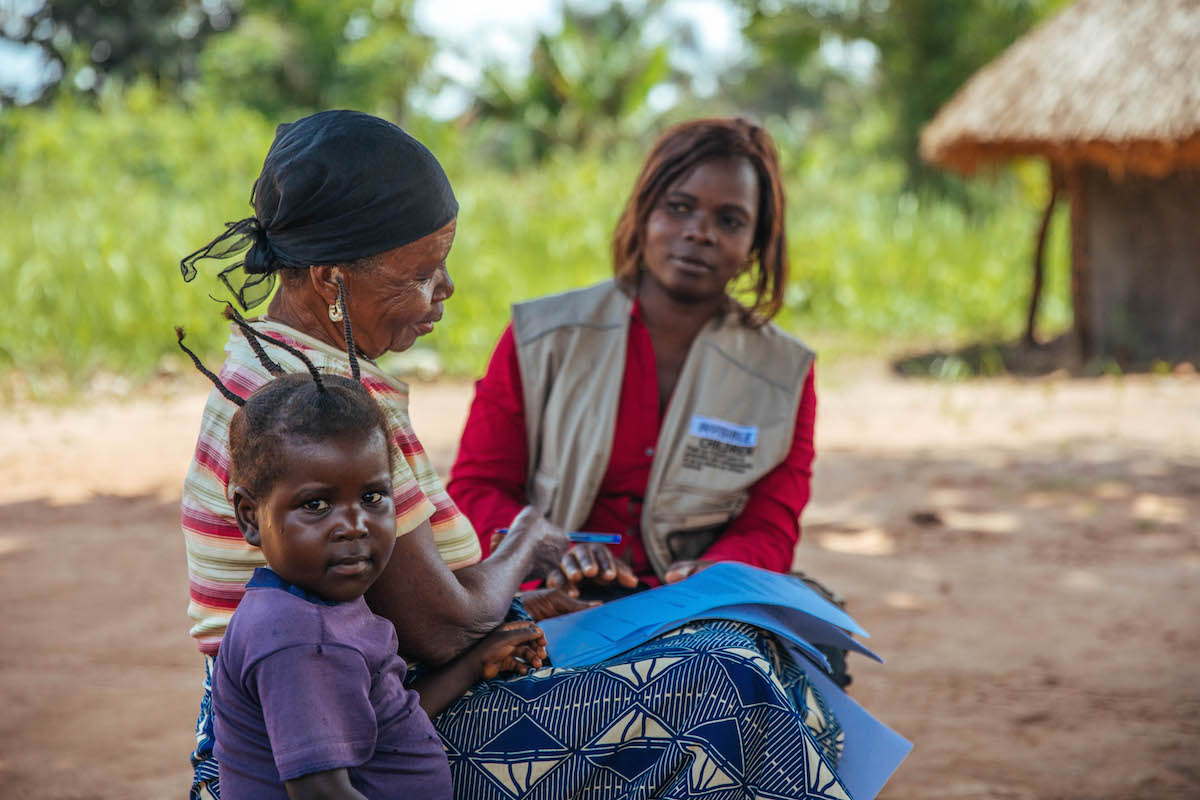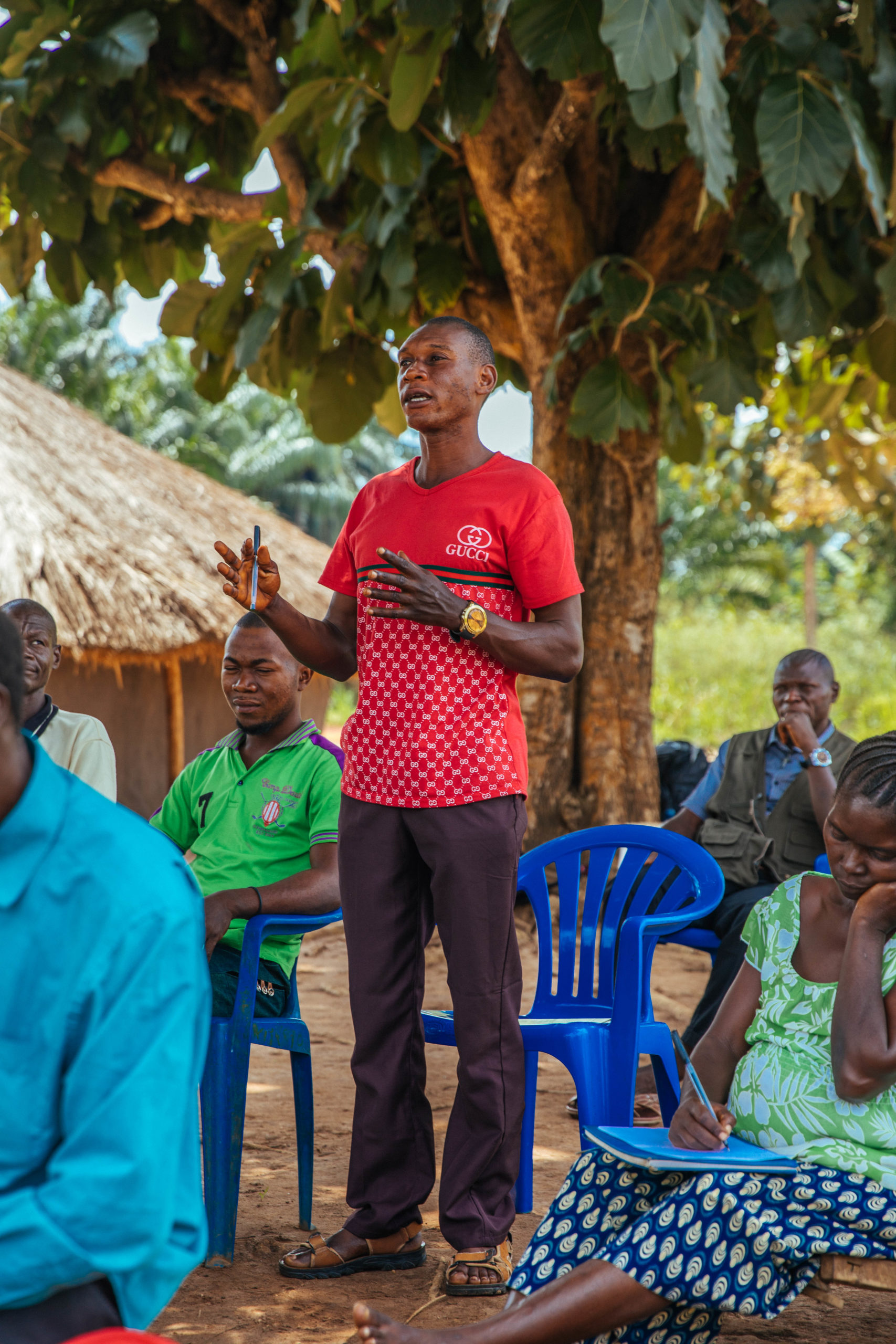Research shows that, without adequate access to mental health services, communities become less resilient to the political, economic, cultural, and social pressures caused by violent conflict, which can contribute to further cycles of violence. However, when individuals do have the tools to process negative experiences, they’re better equipped to effectively manage their stress levels and improve their ability to make informed decisions. In turn, their ability to respond to security threats and work with other community members toward solutions is improved.
It’s especially important to ensure that community leaders and local peacebuilders are equipped to address their own trauma as well as to support others in their communities. That’s why we’re working closely with psychosocial experts to provide central African peace committees with tools to address the psychological and social challenges caused by violent conflict.

Recently, we were able to help one peace committee in the Central African Republic (CAR) address tension between two of its members experiencing trauma. In this community, tensions between local armed groups had extended to tensions between civilians of related ethnic groups. While providing training to the peace committee, Invisible Children’s staff psychologist, Boris, noticed tension between two members of the peace committee that represented the groups in tension. After asking other members, Boris learned that the two members in conflict were good friends, but now in dispute over accusations of one man’s ethnic group looting the other’s of their belongings. As a result, the peace committee was struggling to accomplish activities while the two men refused to speak to one another.
By speaking to the members of the peace committee, Boris realized that providing some space for the two members in conflict to recognize and address symptoms of trauma could help them address the tension that was preventing the peace committee from carrying out it’s work. In the short time he was visiting, Boris consulted each man individually, providing them a safe space to express their anger, feelings of betrayal, and suffering. Following this individual counseling, Boris then led the peace committee through a process during which the two men were able to express their feelings to each other in the presence of the other members. By the end of the exercise, the two men were able to resolve their own conflict and move forward as friends and fellow peace committee members. As a result, the committee was able to resume their activities equipped with more tools to recognize signs of trauma, support one another, and resolve conflict.

Over the next several months, we will continue to work with this peace committee and others like it in 45 communities in eastern CAR and northeastern DRC. We’re equipping them with tools to recognize, understand, and address trauma and social challenge within their communities so that they have access to more tools to help themselves, each other, and their communities to navigate trauma and work toward peace.
Along with larger-scale awareness campaigns, which inform communities of the signs, causes and consequences of trauma, we are training local volunteers in basic psychosocial community care, and “Psychological First Aid.” To support those who need more specialized care we are partnering with local health clinics to provide additional psychological support.
Your support makes it possible for us to continue supporting local peacebuilders working to address challenges facing their communities. Donate today to support programs that help central African communities prevent violent conflict, recover from its impact, and become more resilient.
Some programs described in this blog are made possible with the support of the American People through the United States Agency for International Development (USAID). The contents of this post are the sole responsibility of Invisible Children and do not necessarily reflect the views of USAID or the United States Government.

Think people should hear about this?